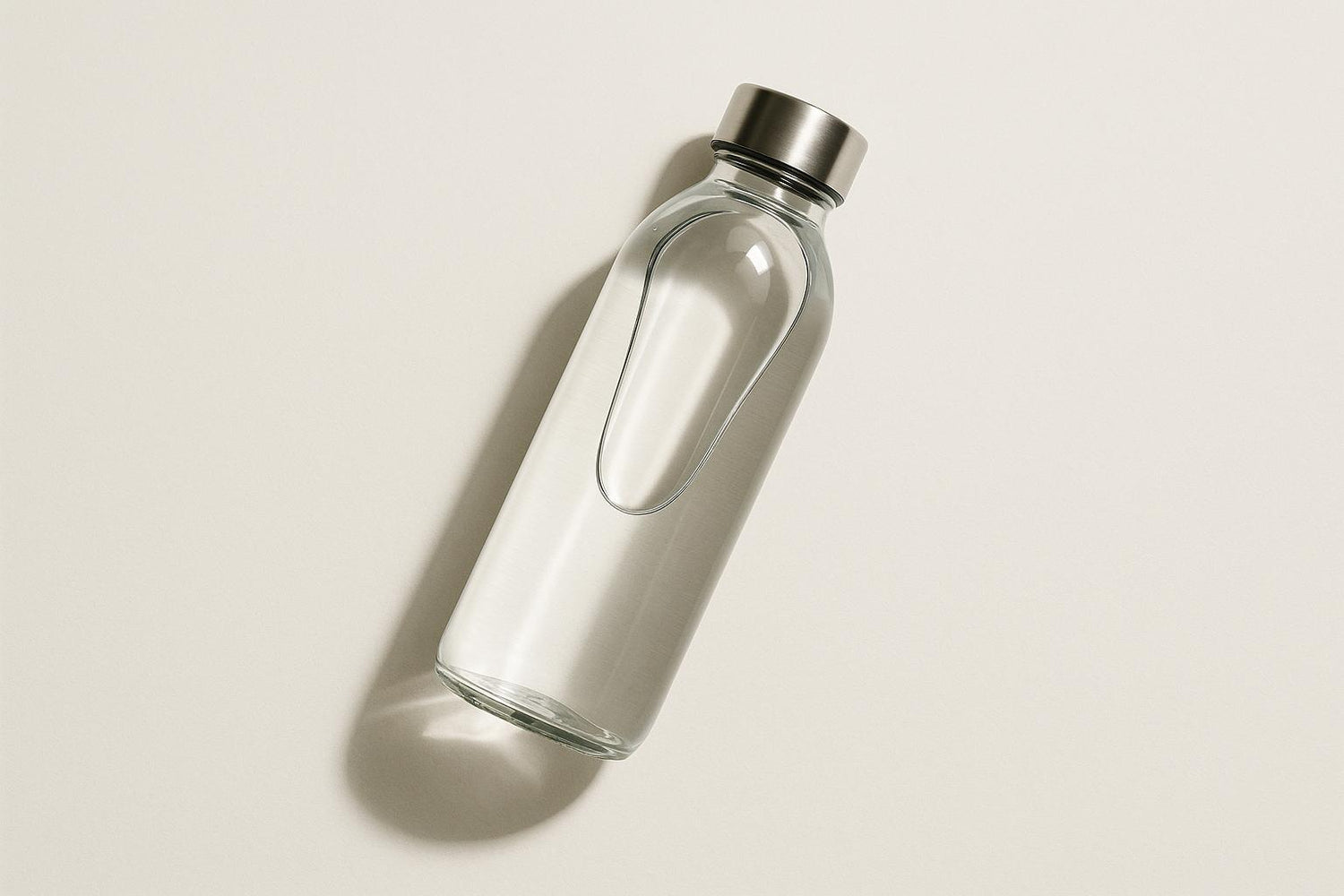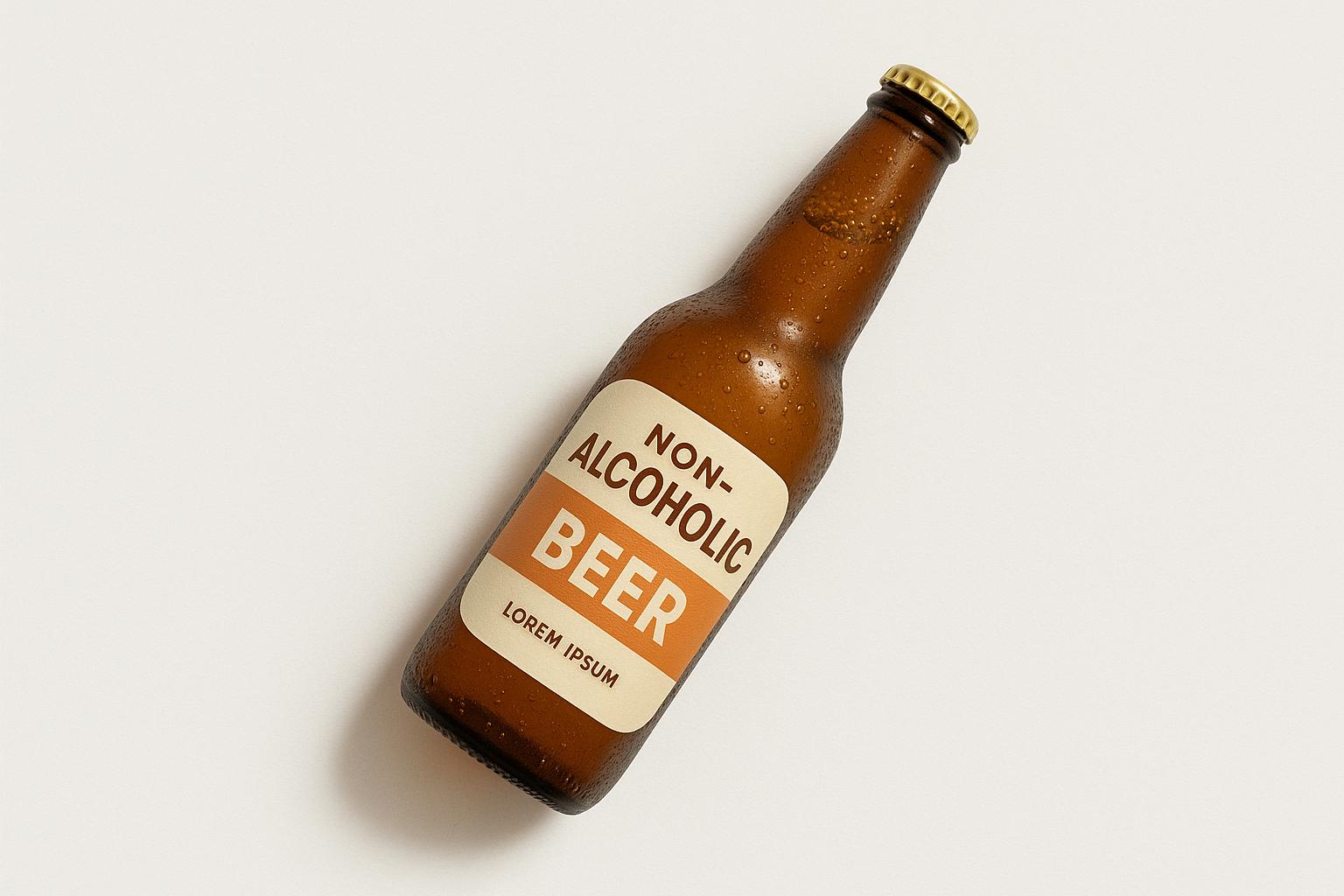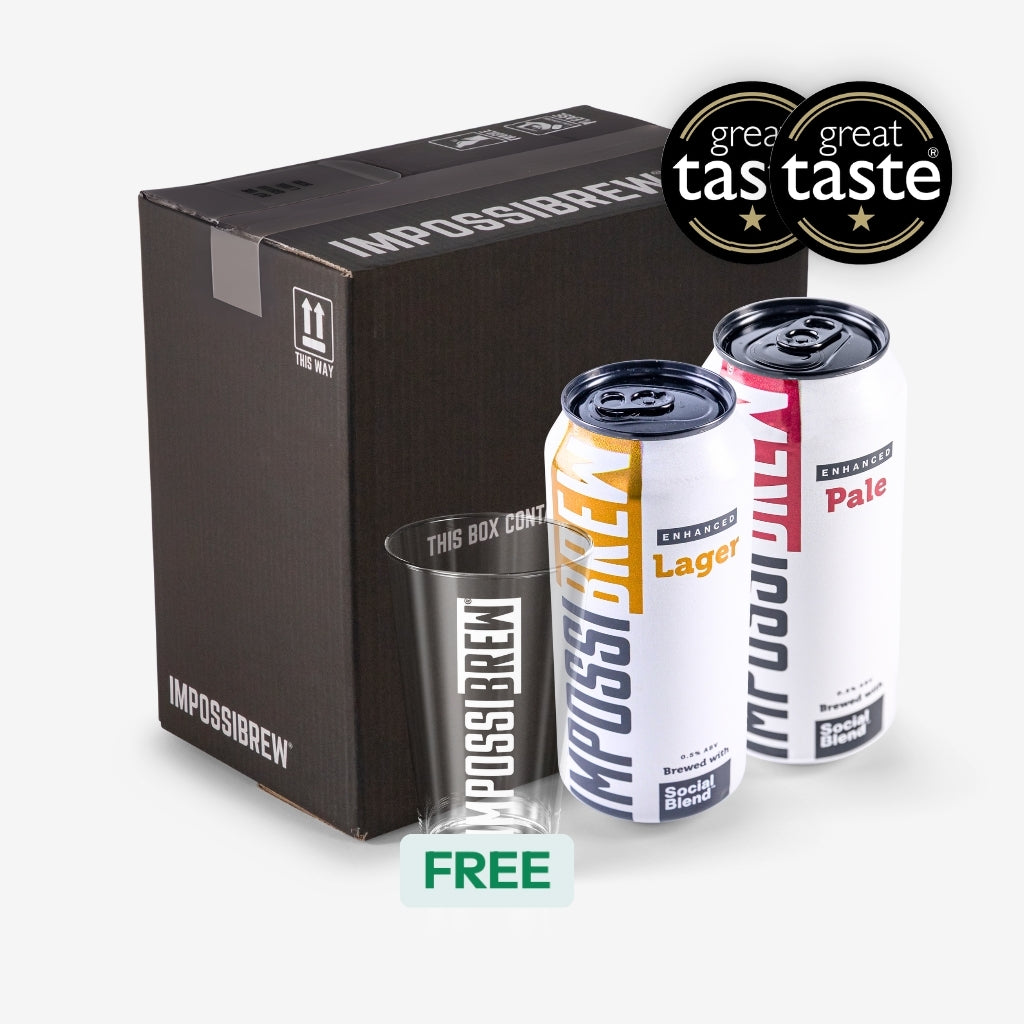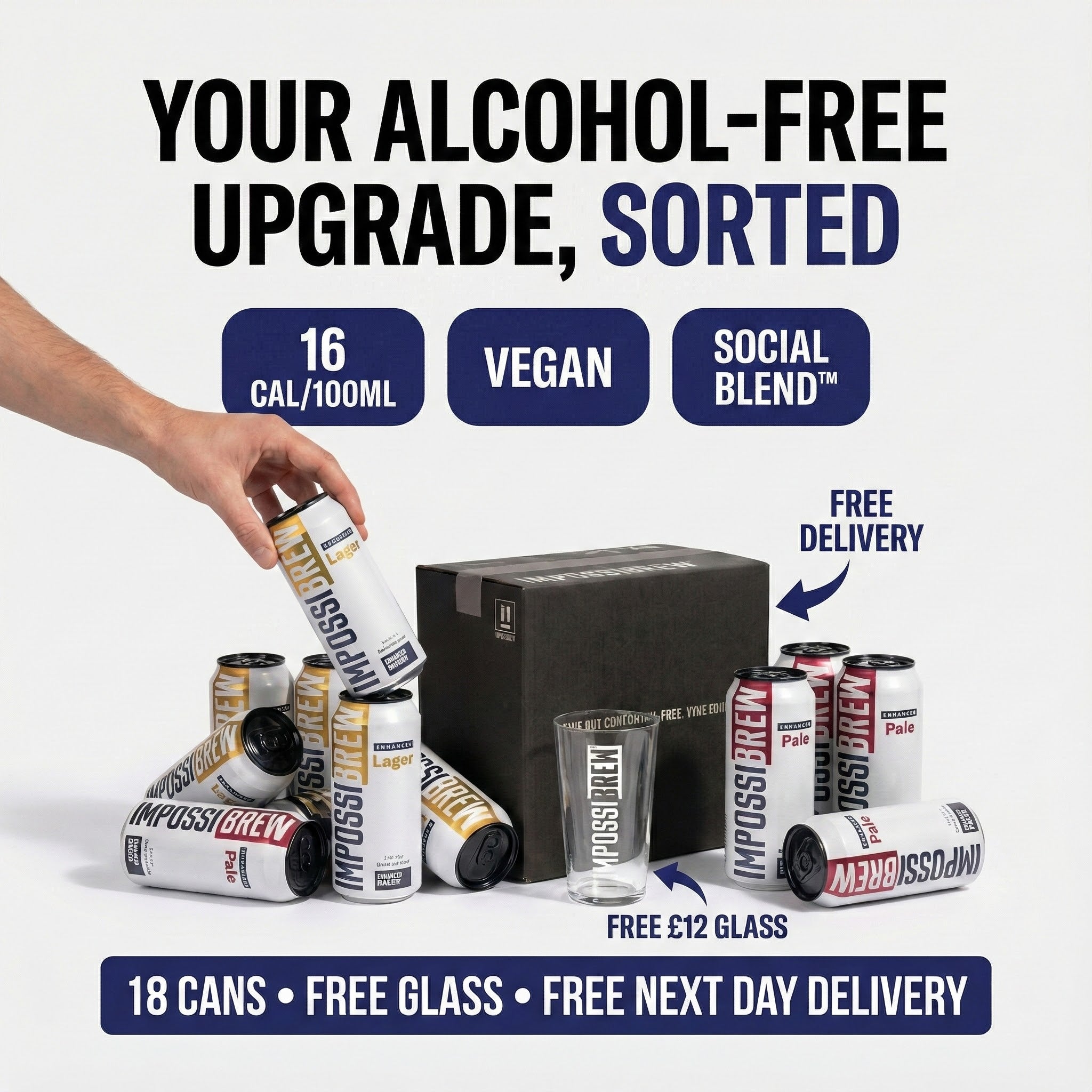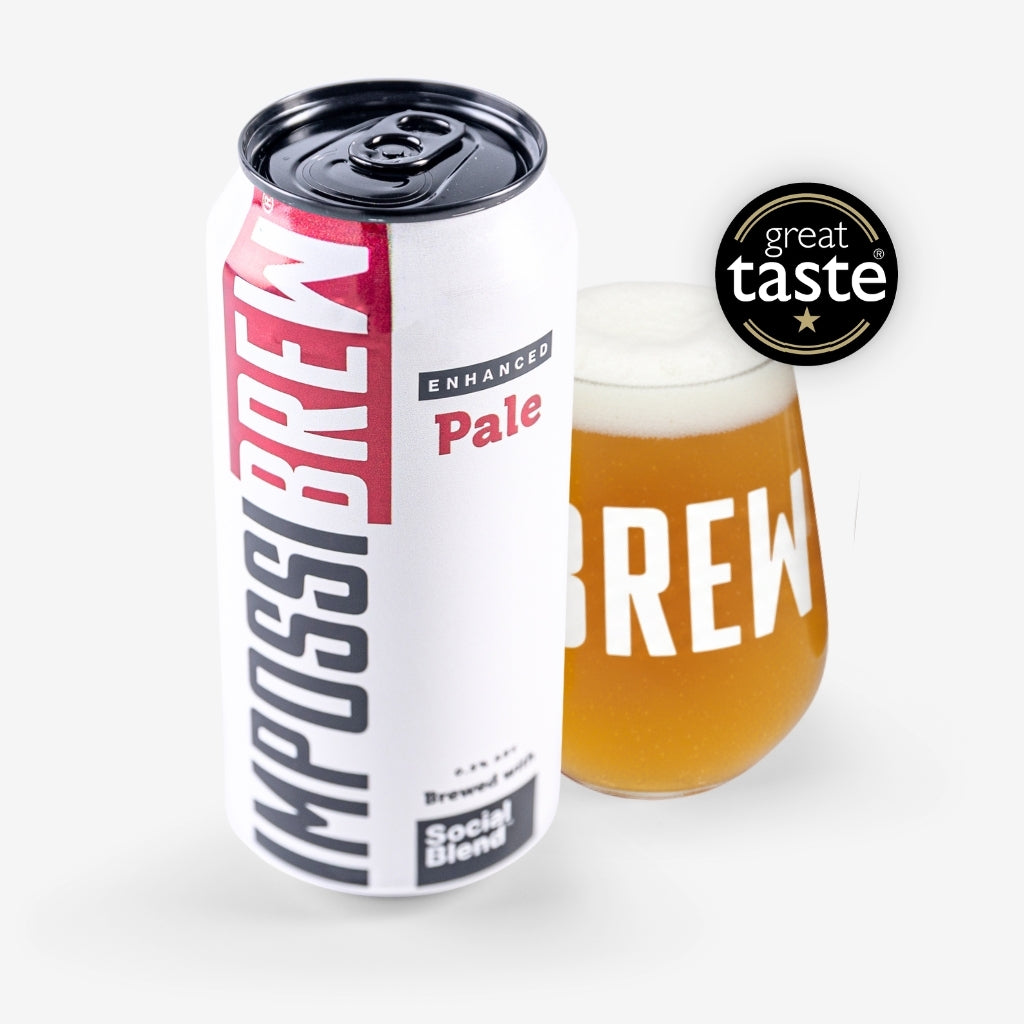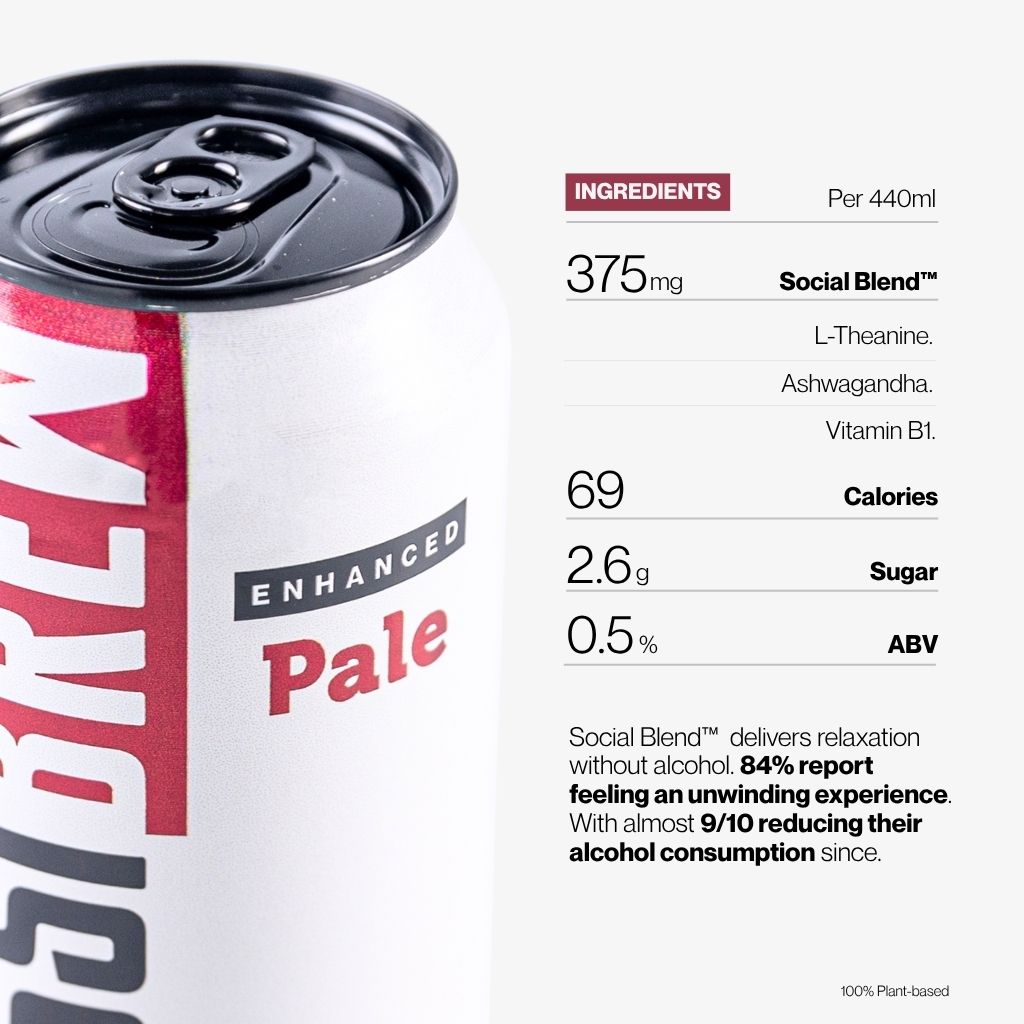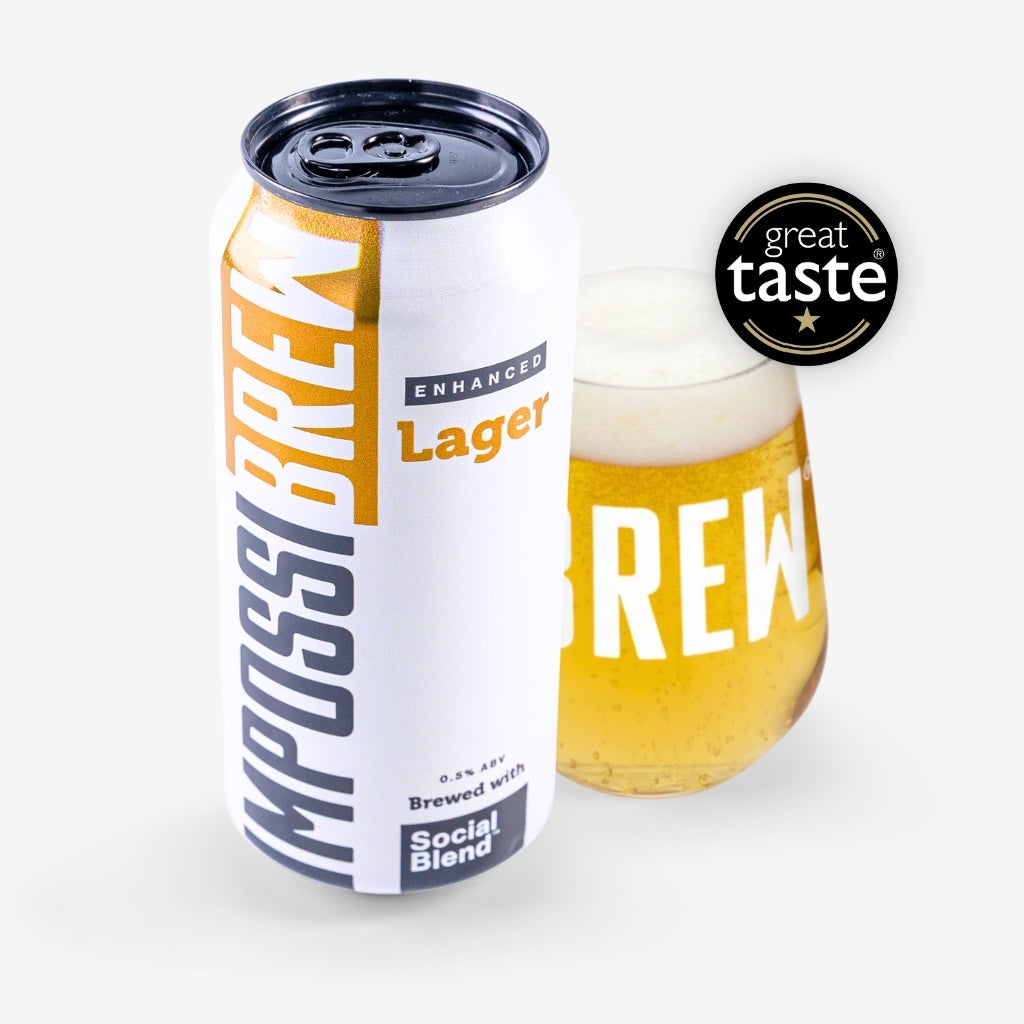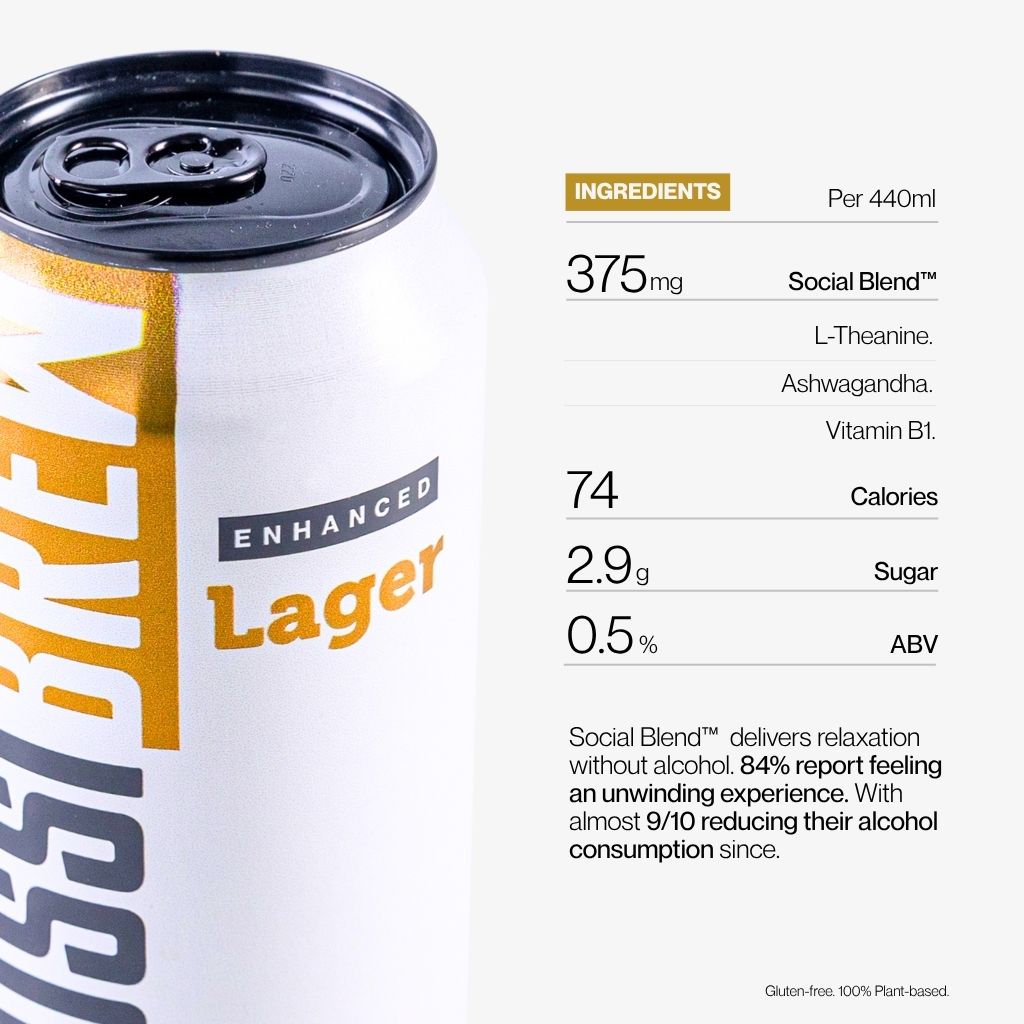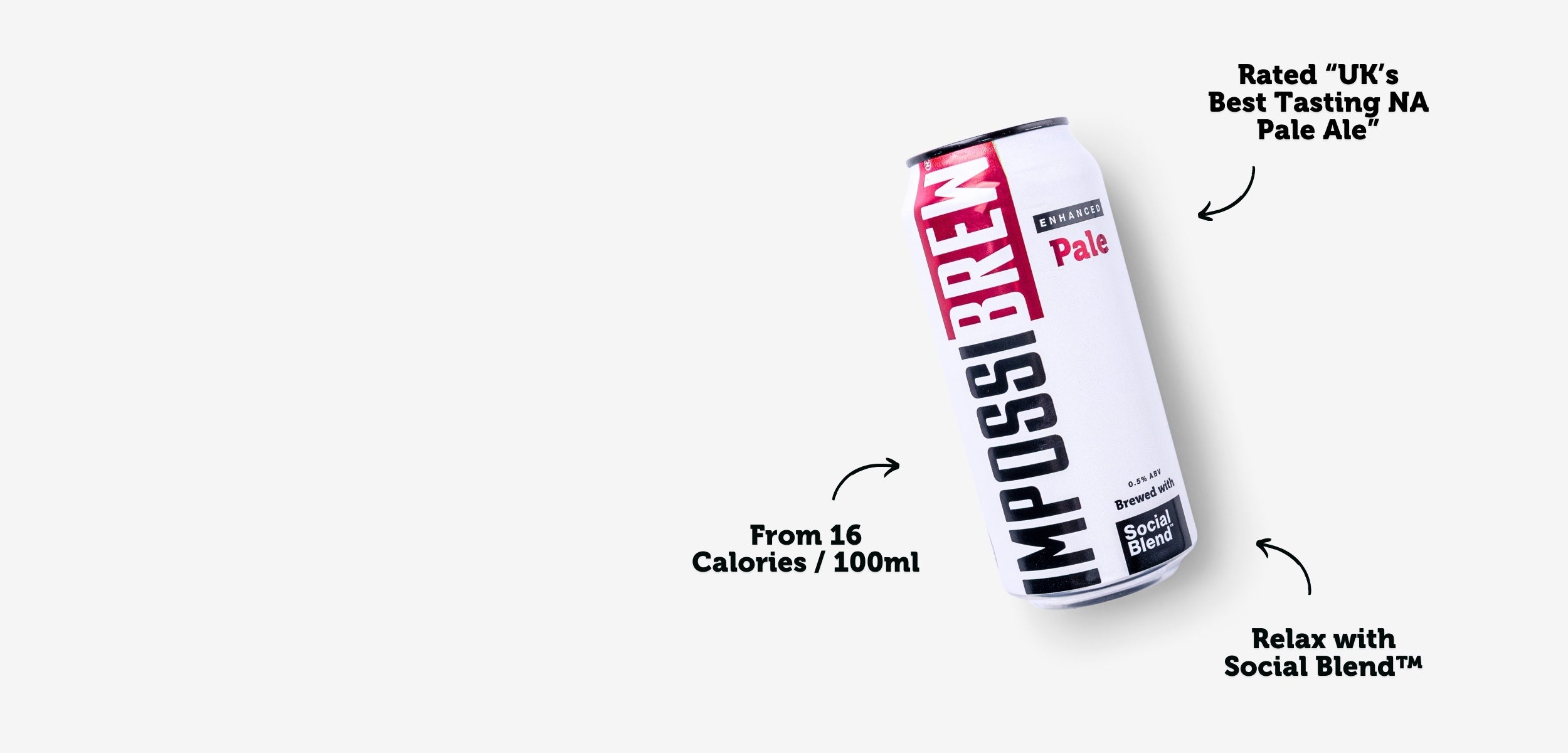In 2025, more than half of Gen Z and Millennials in the UK are exploring sobriety, driven by health, financial priorities, and personal choices. This trend is reshaping industries, including fashion, with brands shifting focus from indulgence to wellness. Social media platforms like Instagram and TikTok have accelerated this movement, making sobriety a celebrated lifestyle.
Fashion brands are responding in two key ways:
- Legacy brands: Known for luxury and exclusivity, they are adapting their messaging to align with wellness trends but risk being seen as outdated due to their ties to alcohol-centric imagery.
- Sober-focused brands: These newer labels prioritise wellness, resilience, and community. They integrate social impact, such as recovery support, and appeal to younger, health-conscious consumers.
The shift highlights changing consumer values, with sobriety becoming a lifestyle choice tied to mental clarity and meaningful experiences. Brands that align with these values are positioned to thrive in this evolving market.
1. Traditional Fashion Branding
Messaging and Values
Traditional fashion branding has long been built around aspirational storytelling, appealing to consumers' desires for luxury, success, and exclusivity. Think of iconic names like Chanel, Gucci, and Burberry - these brands have masterfully linked their identities to a sense of achievement and glamour. Their narratives often blend creative self-expression with images of high-end lifestyles, where indulgence and celebration, sometimes symbolised by alcohol, take centre stage[6].
This approach has cemented a connection between fashion and success, positioning these brands as trendsetters and arbiters of style. Their messaging is carefully designed to attract a specific audience, creating an image of sophistication and allure.
Target Audience
Traditional fashion brands have historically focused on affluent, style-savvy consumers[6]. Their strategies appeal to urban professionals who seek exclusivity, as well as younger audiences eager to showcase their taste through accessible luxury.
Beyond income and age, these brands target individuals who use fashion to express their identity and align themselves with aspirational lifestyles. The appeal often extends to those seeking membership in exclusive social circles, making these brands a symbol of belonging and prestige. This targeted approach has also influenced broader cultural discussions around style and status.
Cultural Impact
Fashion brands have played a pivotal role in shaping societal norms and cultural conversations. They’ve often used their collections and campaigns to make political or social statements[6]. For example, the rise of streetwear in luxury fashion reflects how urban culture has reshaped traditional ideas of style, blending high fashion with everyday wear.
Collaborations and Campaigns
Collaborations have become a cornerstone of traditional fashion branding, generating excitement and reinforcing cultural relevance[6]. Luxury houses like Gucci and Louis Vuitton have partnered with artists and celebrities to create limited-edition collections and exclusive events. Memorable collaborations include Louis Vuitton’s work with Takashi Murakami and Supreme, which brought together art, streetwear, and high fashion.
These campaigns often rely on experiential marketing tactics, such as pop-up stores, fashion shows, and festival sponsorships. A significant share of their marketing budgets is allocated to celebrity endorsements and exclusive product launches[4]. Aligning with major events, like London Fashion Week, helps these brands build anticipation and drive sales by creating a sense of scarcity and exclusivity.
High-production advertising is another key strategy, featuring supermodels or celebrities in luxurious, aspirational settings. Partnering with top fashion magazines further reinforces their image as cultural icons[6]. These campaigns not only maintain their legacy of exclusivity but also adapt to evolving consumer values, such as those reflected in the growing sober movement.
Russ Mariano: Finding Sobriety Through Fashion | The Hopeaholics Podcast #143
2. Sober-Focused Fashion Branding
As established fashion brands shift their focus from exclusivity to creating meaningful experiences, sober-focused labels are stepping in with narratives that celebrate wellness and community.
Messaging and Values
Sober-focused fashion brands are built around themes of empowerment, resilience, and connection. Moving away from the luxury-driven image of traditional fashion, these brands present sobriety as a powerful and positive lifestyle choice. Through motivational messaging and thoughtful designs, they aim to create a sense of belonging and hope, encouraging individuals to share their stories and inspire others through what they wear[7][5].
A standout feature of many sober fashion brands is their integration of charitable giving and recovery support into their business models. For instance, SoberSuccess.Store channels a portion of every sale into recovery outreach programmes, demonstrating a commitment to social impact that resonates with values-driven shoppers[7]. This approach not only strengthens their credibility but also appeals to consumers eager to make purchases that contribute to meaningful causes.
The messaging is positive and inclusive, focusing on reducing the stigma around addiction and recovery. Brands like "Doing It Sober" and "New Lyfe Clothing Company" offer collections that feature slogans, graphic designs, and streetwear styles, normalising sobriety as a desirable, aspirational choice[7][2][5]. This uplifting narrative naturally connects with individuals seeking wellness and authenticity in their lives.
Target Audience
The core audience for sober-focused fashion includes people in recovery, the sober curious, and younger generations like Gen Z and Millennials[3]. These consumers value authenticity, health, and wellness, and they see fashion as a way to express their commitment to sobriety without fear of judgement. This trend reflects broader shifts in attitudes toward alcohol and lifestyle choices among younger demographics.
This group places a high priority on mental clarity, emotional well-being, and overall health, often choosing brands that align with their values. Busy professionals and parents searching for healthier lifestyle options are also drawn to this movement, seeing it as part of their broader wellness journey.
Cultural Impact
Sober-focused fashion is making waves by reshaping cultural narratives around sobriety. These brands are helping to destigmatise and normalise sobriety, presenting it as empowering and fashionable rather than restrictive[7][3][5]. By making sobriety visible and aspirational, they are challenging the long-standing association between fashion and alcohol-driven lifestyles. Social media platforms like Instagram, TikTok, and YouTube amplify this shift, allowing influencers and advocates to share personal stories, style ideas, and wellness tips that inspire others to engage with the movement.
This trend aligns with a broader wellness movement, challenging traditional marketing that glorifies alcohol in fashion. Sober-focused brands are using their platforms to show that sobriety is not only a personal choice but also a cultural statement.
Collaborations and Campaigns
Collaborations have been a key strategy for sober-focused fashion brands, with partnerships spanning sober influencers, wellness advocates, and events like sober festivals or fashion weeks[4]. Experiential marketing tactics - such as pop-ups at major festivals or exclusive product launches - have proven successful in making sobriety both stylish and aspirational[4].
Take Soberchella, for example. This event offers immersive, alcohol-free experiences and exclusive merchandise, drawing significant attention and media buzz[4]. Such initiatives highlight how sober-focused branding is carving out a space at prominent cultural events, where brands sponsor alcohol-free zones and showcase merchandise that aligns with their ethos.
Cross-industry collaborations are also gaining traction. Fashion brands are teaming up with non-alcoholic beverage companies to co-host events, release limited-edition products, or launch joint campaigns. A partnership with a brand like IMPOSSIBREW®, known for its enhanced non-alcoholic beers designed for social settings, could emphasise shared values of wellness and align with the same health-conscious audience.
These brands also prioritise inclusive sizing, gender-neutral designs, and diverse representation in their marketing, ensuring they create welcoming spaces for everyone, regardless of their background or stage in the sobriety journey. Their product offerings, ranging from hats and beanies to handbags and accessories, cater to a variety of tastes and preferences[7][2].
sbb-itb-a752bf8
Pros and Cons
Both traditional and sober-focused fashion branding come with their own set of benefits and challenges. Let’s take a closer look at how these two approaches stack up against each other.
Traditional Fashion Branding Strengths
Traditional fashion brands have the advantage of established market recognition. Their messaging is designed to appeal to a broad audience, often tapping into familiar social traditions. This makes their products feel like a natural fit for many occasions.
Another key strength is their mass-market appeal. These brands don’t have to work hard to explain their value - associations with luxury, celebration, and social status are already ingrained in the public mindset. This broad understanding allows them to attract diverse demographics, cutting across age groups and backgrounds.
Traditional Fashion Branding Weaknesses
However, as consumer attitudes evolve, traditional branding faces some noticeable hurdles. The strong ties to alcohol-centric culture, for instance, can alienate health-conscious and younger consumers. With projections indicating that 52% of Gen Z and Millennials may engage in the sober-curious movement by 2025, traditional branding risks being seen as outdated or out of touch with this growing market[3].
Moreover, traditional branding can come across as inauthentic to those who prioritise wellness and mindfulness. Themes of escapism and party culture may clash with the values of consumers seeking deeper connections and meaningful experiences, potentially eroding loyalty among these shoppers.
Sober-Focused Fashion Branding Strengths
Sober-focused brands excel at building authentic connections with their audience. Their messaging often centres on empowerment and community, resonating deeply with health-conscious consumers who view sobriety as a lifestyle choice rather than a limitation. Many of these brands also integrate charitable giving and recovery support into their business strategies, which enhances credibility and appeals to socially conscious buyers.
These brands are also incredibly relevant to modern wellness trends. By emphasising mental clarity, resilience, and emotional well-being, they address contemporary concerns about mental health and authentic living. This is particularly appealing to younger generations, who often discover the sober-curious movement through social media platforms[3].
Sober-Focused Fashion Branding Weaknesses
The biggest challenge for sober-focused brands is their limited visibility in the mainstream market. Their messaging might not resonate with consumers who don’t identify with sobriety or recovery themes, which could limit their appeal. Additionally, some may perceive their messaging as overly moralistic or exclusive, creating barriers to wider acceptance.
Another issue is scaling the brand while staying true to its core values. Expanding beyond the sober community without losing authenticity is a delicate balancing act. Missteps could risk alienating their loyal audience or diluting their identity.
| Aspect | Traditional Fashion Branding | Sober-Focused Fashion Branding |
|---|---|---|
| Messaging | Glamour, escapism | Empowerment, wellness |
| Audience Appeal | Mainstream, aspirational | Health-conscious, Gen Z/Millennials |
| Cultural Relevance | Alcohol-centric events | Wellness and social change |
| Community Building | Individualistic | Support and belonging |
| Social Impact | Limited | Supports recovery, charitable giving |
| Market Reach | Broad demographic | Niche but expanding |
| Brand Authenticity | May feel outdated | Strong with target audience |
A great example of sober-focused branding in action is IMPOSSIBREW®’s enhanced non-alcoholic beers. These products show how brands can broaden their social appeal while staying aligned with health-conscious values.
The growing appeal of sober-focused branding, particularly among younger, wellness-driven demographics, highlights a shift in consumer priorities. These comparisons provide a framework for brands to align their messaging with the values of today’s evolving marketplace.
Conclusion
The fashion industry is undergoing a noticeable transformation as brands begin to align with the growing trend of sober values. This shift isn't just a fleeting trend; it's a direct response to changing consumer preferences. With 52% of UK Gen Z and Millennials expected to explore the Sober Curious movement [3], brands that adapt to these values are positioning themselves to lead this emerging market.
The divide between traditional branding and sober-focused strategies highlights a future where authenticity and community take centre stage. While traditional approaches may still appeal to some, they risk feeling outdated to health-conscious consumers who prioritise meaningful experiences over escapism. The success of brands like SoberSuccess and Doing It Sober illustrates the commercial potential of catering to this demographic [7][2].
This shift is reshaping both consumer behaviour and the market itself. Consider the numbers: 88% of consumers have reduced their alcohol consumption after discovering sober-aligned alternatives, and 95% of those who tried these products recommended them to others [1]. Such organic recommendations are gold for building loyalty and expanding reach.
Fashion brands are also integrating sober values into their operations in creative ways, from partnering with charities to sponsoring inclusive events. Take Soberchella 3.0 as an example - this event showcased over 30 booze-free brands and highlighted how sobriety is becoming an aspirational lifestyle, not a restrictive one [4].
This movement reflects a broader cultural shift towards mindful consumption and social responsibility. It mirrors the evolution of fashion itself, moving away from traditional exclusivity towards values-driven expression. Brands that embrace these ideals - through collaborations with companies like IMPOSSIBREW® or by supporting recovery initiatives - create deeper connections with consumers who see their purchases as reflections of their values.
FAQs
How are fashion brands evolving to connect with the growing sober lifestyle movement among younger audiences?
Fashion brands are aligning themselves with the growing sober lifestyle movement, weaving it into their marketing approaches and core values. This change mirrors the priorities of younger consumers, who are leaning towards wellness, mindfulness, and social activities that don't centre around alcohol.
In the same vein, IMPOSSIBREW® champions this shift with its line of enhanced non-alcoholic beers. Designed to capture the flavour and calming effects of traditional alcoholic beverages - minus the drawbacks - these beers provide a refreshing option for those looking to maintain a more balanced lifestyle. With options that are low-calorie, vegan-friendly, and gluten-free, they meet the needs of today’s health-conscious yet pleasure-seeking consumers.
How are social media platforms influencing the fashion industry's embrace of the sobriety movement?
Social media platforms have become a driving force in how the fashion industry connects with the sobriety movement. By spotlighting topics like wellness, mindfulness, and balanced living, platforms such as Instagram and TikTok create spaces where brands can engage with audiences who embrace these values.
Fashion brands are using these platforms to highlight campaigns, partnerships, and events that celebrate sober lifestyles. Meanwhile, influencers and content creators are playing a vital role by sharing their personal journeys and endorsing products that resonate with this movement. Their efforts are not only sparking conversations but also helping to make sobriety a more prominent and accepted part of the fashion landscape.
What obstacles do fashion brands focused on sobriety face when trying to grow while staying true to their values?
Fashion brands aligning with the sober movement often walk a fine line between growth and staying true to their roots. As they aim to reach a wider audience, sticking to their original message and values can become a tricky balancing act - especially when some potential customers might not fully resonate with the sober lifestyle.
Another challenge lies in ensuring their messaging comes across as sincere, not just a marketing ploy. Today’s consumers are highly perceptive and quick to spot when a brand’s actions don’t align with its proclaimed values. To build trust and lasting loyalty, brands need to find a way to promote inclusivity while remaining faithful to the principles of the sober movement.

